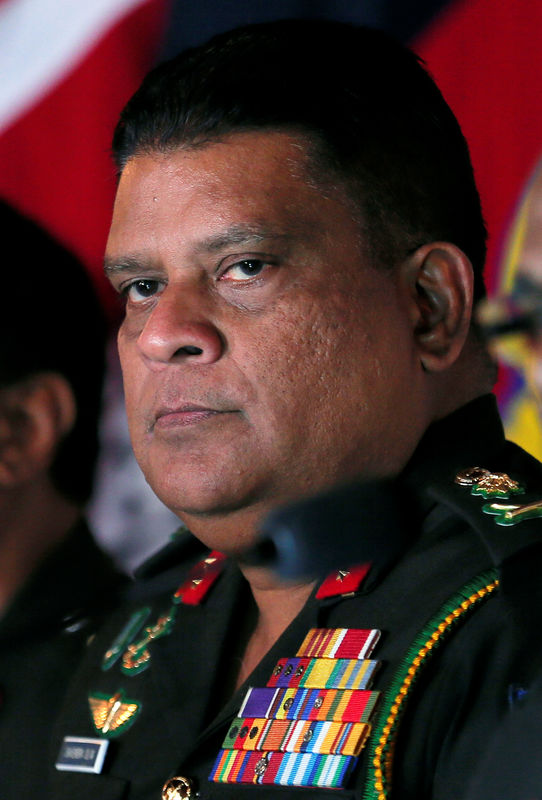COLOMBO (Reuters) - Sri Lanka on Tuesday brushed aside as "unwarranted and unacceptable" international criticism of its decision to name a war veteran accused of human rights violations as its army chief.
Monday's appointment of Shavendra Silva, 55, a key military leader during the final phase of the island nation's 26-year-long war with dissident Tamil Tigers, drew flak from the United States, United Nations and civil society groups.
The appointment was a sovereign decision taken by Sri Lanka's president, its foreign ministry said on Tuesday.
"Foreign entities trying to influence the decisions and internal administrative processes of public service promotions in Sri Lanka is unwarranted and unacceptable," it said in a statement.
Concerns raised over the appointment were "based on allegations" and were "regrettable", it added.
In a statement, the European Union said the appointment called into question Sri Lanka's international commitment to ensure justice and accountability.
"It also undermines Sri Lanka's efforts towards national reconciliation and sends a worrying message to victims and survivors of the war," the delegation of the European Union in Sri Lanka said on Tuesday.
A United Nations panel has accused Silva's army division of suspected extrajudicial executions of unarmed rebels in the final week of the war, which ended in 2009, and systematic torture of people in custody.
He has denied the accusations.
Some of Sri Lanka's key allies could sever ties with the country's military with Silva at the helm, security experts have warned.

"The U.S. might stop its military assistance, specially training to Sri Lanka," said defense analyst Iqbal Athas, adding that the Indian Ocean island nation could face a similar backlash from the European Union.